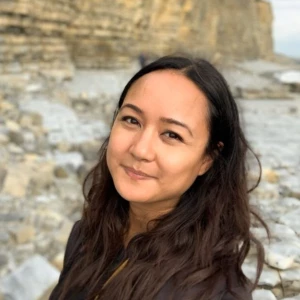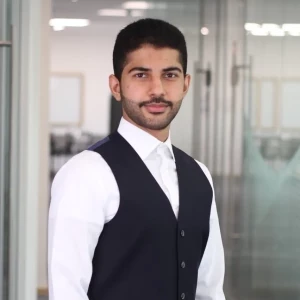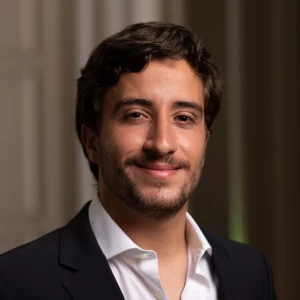If you had to choose only one between those 2 books, which one would you choose?
Case in point vs Case interview secrets(Victor Cheng)
If you had to choose only one between those 2 books, which one would you choose?
Case in point vs Case interview secrets(Victor Cheng)


Hello,
I would suggest Case in point. Victor Cheng could add value but could also be a bit confusin if you start from scratch with that.
Go for the Cosentino's book and then have a look to Case interviews secrets between your case sessions.
Best,
Luca

Hi,
I strongly recommend you rescheduling the interview - the chances of preparing in one week are close to 0. Please save you time and the chances of getting an offer. There is absolutely no penalty for rescheduling if it's not the internship / on-campus recruiting!
Take a month or so. You can't imagine how many people have failed just because they didn't take enough prep. Again, there is absolutely no penalty for rescheduling.
Overall, I recommend the following approach:
1) Start with "Case in point" book - It's not the best guide on how you should approach the cases, however, it will give you the basic understanding.
2) Start practicing cases with partners here or find them locally. !!! Find experienced partners or coaches who can provide a good feedback!!!
3) Purchase and read Viktor Cheng Book (Amazon Kindle store) and listen to LOMS (his website).
4) Start with the following cases (in the order of priority, relevant for pwc) and apply some high-level recommendations on structuring:
Here is a good list of articles regarding the different parts of the case:
1) Start with clarifying questions:
https://www.preplounge.com/en/consulting-forum/clarifying-questions-1786#a3956
2) Communicating while structuring. Here is a long post by me on how to communicate the structure during the case study:
https://www.preplounge.com/en/consulting-forum/how-to-communicate-its-structure-for-the-case-study-1313#a2806
3) Using hypothesis. I made a post about hypothesis here:
https://www.preplounge.com/en/consulting-forum/how-to-state-a-hypothesis-and-match-to-the-structure-1156#a2268
4) Communicating while making calculations:
5) Communicating during the analysis of graphs / tables
6) Communicating while having questions on creativity
7) Communicating your conclusion. You can find a good example I've posted here:
https://www.preplounge.com/en/consulting-forum/how-much-answer-first-should-the-conclusion-be-1231#a2493
8) Communicating your FIT stories
Use the top-down approach while communicating your stories. "The Pyramid Principle" is the must-read by ex McKinsey on this topic.
I recommend using the STAR framework:
Best!

Hey there,
Victor Cheng was mostly useful 10 years ago.
Mind that he worked at McKinsey before the turn of the century (pre-2000s) and while he is the OG of case interview prep (all credits to him), you can see that his methods are no longer 100% effective in today's case environment.
The reason is that he focuses very much on a framework/ cookie-cutter approach rather than on the creative and communicative approach that is needed nowadays.
MBB and especially McKinsey have moved away from the typical cases to more creative ones. It is not about pre-learned frameworks but you need to demonstrate your own thinking and creative process.
For instance, at the core, McKinsey wants to see creative ideas communicated in a structured manner, the more exhaustive the better.
Now the danger with Victor Cheng's approach is that candidates learn his frameworks and feel well prepared, then go into the real interview and receive the feedback that their approach was not broad or deep enough and lacked insights and insightfulness.
Your goal should be to come up with a tailored and creative answer that fits the question. The framework should - broadly speaking - follow these three characteristics:
You would need to go into more detail and qualify your answer with practical examples and more details at the lowest level. Learning frameworks will give you a false sense of security.
I'll leave you with a case I received when I was recruited:
Our client is a manufacturer and operator of self-check-in machines at different US airports. They break down at different rates in different locations. What could be potential reasons for this?
Now, try using a cookie-cutter approach on that initial case structure question.
That is why I am advocating the HOW of approaching cases much more than the WHAT. You want to be able to solve every case, no matter the industry, function, or context.
Cheers,
Florian

Hi there,
You asked 1 associate...
If you've asked more than 1 and have a healthy sample size I'm all ears! Otherwise, it's very risky to generalize.
Victor Cheng is a well known name and is good (and easy) to recommend. He'll get you to an intermediate level.

Victor Cheng is a hygiene check in case interview preparation. His videos are a very nice systematic introduction to case solving. However, they are also fairly dated by now. Case interviews and interviewers have evolved in recent times. I would say Victor Cheng is always a good starting point - but it only teaches you the basics of case solving.

No harm at all in starting with Victor Cheng, but that alone will not help you be a top caser

Hey,
I would strongly recommend that you shift your interview. You will need to be very, very luckly to pass after only one week in preparation time, even if you practice full time every day. Recruiting people will not mind if you shift if you tell them a week in advance.
If you still want to try, I would recommend craftingcases.com as a very good source of material. And doing as many live cases as you can.
Best,
John
Hi Anonymous A,
thanks for asking your quesiton on our Consulting Q&A!
You're not the first one to be interested in some insights on the LOMS program by Victor Cheng.
I recommend you to check out the following older threads on this:
Bad Experience with Victor Cheng Case Interview Material - alternatives?
Hope this helps!
Best of luck for the rest of your case prep and your upcoming interviews!
Astrid
PrepLounge Community Management

It's an excellent programme to practice cases by yourself, without a case partner. Especially if you haven't done many cases before, it can really give you a sense of the flow of a case interview, what/how to ask questions, and perhaps most importantly, what many of the common pitfalls are for candidates.
I also particularly like that you can listen to it on the go, so can make good use of e.g. the bus commute to practice cases!

Hi!
Vlad is absolutely right - pick up the phone and reschedule your interview. YOU decide when you interview, not the firm! If you are serious about joining BCG, you prepare properly before walking into the interviews.
Cheers, Sidi


Hi Anonymous,
I agree with the suggestions to reschedule. Many people invest 100-150 hours and do 50+ cases before approaching interviews – it is unlikely you can get an offer without more time to prepare.
In terms of the preparation, I would suggest the following
Best,
Francesco

I did purchase his program upon joining BCG, and even kept it for a little while afterwards. Honestly though, I felt it was (a) not nearly as impactful as his programs geared towards applicants - such as LOMS, and (b) probably more useful for a 22yo than someone with a bit more work/life experience.
Would I recommend it? Probably not, honestly. Travel, relax... perhaps read a couple of these resources you mention or do some excel, but above all enjoy these last few days of bliss - pretty soon, you'll be wishing for more downtime :)
PS: congrats on the offer!

Dear A,
Actually this is good program to start with. And actually i often recommen it to my mentees.
But at some point you have to go to the next level and start practicing cases with peers or with coach for getting structure feedback and guidelines.
And the more the better.
Hope it helps,
Best,
André

Hi,
You should do both and much more (40+ personal interviews). Sorry, there is no world where you can just choose between the two
Best

Hi! Both books are good starting points, but nothing more. I recommend to read them to get an understanding of the general mechanics and dynamics of a case interview. However, none of the two will equip you with the required skills to robustly address strategic questions.
Cheers, Sidi

Is this framework more about exploring different dimensions of the problem, or could it be used to verify the hypothesis?
This is the exact same question. This is the entire point of a framework...to develop and confirm your hypothesis/es on the problem!
Which approach is the correct way to use the framework?
It depends on the context of your case. However, in general, you are asking questions that get you closer and closer to an answer or an understanding of the world. You're narrowing down (or moving towards) a clearer view of the things that matter for your problem.

Hi,
First of all - using hypotheses is not mandatory. I would say - use the hypothesis if you are really good at solving the cases. If not - use the basic approach
There are two ways to use the hypothesis
First - presenting a structure using the hypothesis. For example, if you are having a PE (private equity) case, you should do the following:
1) Make classic structure (market, company, competitors, feasibility of exit)
2) Make subpoints (e.g. in market: size, growth rates, profitability, segmentation, etc)
3) Present your 1st level Hypothesis:
4) Present the main 2nd level Hypothesis:
Another way to use hypothesis is using the hypothesis to prioritize your analysis:
1) Make a structure: "Problem in sales may be related to Sales Motivation, Sales Strategy, Sales Coverage, and Sales Process:
2) Prioritize a part of the structure based on your knowledge / common sense / available data: "Taking into account that motivation is the core problem of the sales organization, I would like to prioritize this part of the analysis"
Good luck!

Hi Anonymous,
your second option (verify the hypothesis) would be better. However, I would stay away from the Victor Cheng structure of company-client-competition-product – this framework is completely outdated and useless for many cases (eg operations).
Best,
Francesco

I would suggest the second one. ANyway, try to build your own frameworks and not be stucked to the ones proposed by casebooks.
Best,
Luca
PM for details

If you are a beginner I would go with Cosentino

Hello!
You can gain good insights from both of them, but none is 100% holistic of enaugh!
They can be the 1st propedeutic layer of your prep, but the only way to really master casing is by casing.
Hope it helps!
Cheers,
Clara


Hello!
+1 to Francesco, don´t make the mistake at looking at this structures and thinking they would provide you a holistic toolkit, since they won´t.
Is good a pre-read to get up to speed tough.
Hope it helps!
Cheers,
Clara

I confirm the second approach is better.
Best,
Antonello

Hi,
Agree with Ian that "exploring different dimension of the problem" and "verify hypothesis" is the same thing. It is both about how you break down a big problem into small pieces and test where the issue lies.
E.g. the problem could be "is it a good idea to enter market A", you can totally rephrase that to hypothesis of "Enter market A is a good idea" or "A bad idea". Then you would look into the same 4 dimension regardless how you state the problem/hypothesis. In the hypothesis approach, you can just rephrase the dimensions, e.g. "I would like to look into the company capability, to see if they have the right capability to enter; once we have that understanding we can prove or disprove the hypothesis from a capability point of view"...Same for other dimension.
It is the same thing, just how you phrase it. But remember to customise the framework according to the specific case context.
Best,
Emily

Dear A,
I would highly recommend you to purchase and read Viktor Cheng Book (Amazon Kindle store) and listen to LOMS (his website). I recommend rereading the book and listening to LOMS every 15 cases. Every time, having more experience, you’ll be finding something new.
Best,
Andre

Hi,
Both are good starting points. Personally I prefer Victor Cheng's book. Found it easier to digest and more practical. But this is totally personal preference. So I suggest you read both, at least for the first a few chapters. And if you are really time bound, after reading both for a bit, you should be able to have a feel of which one suits you better.
Best,
Emily

Hi, I confirm it is a good material to approach your preparation but it's not making you a top performer.
Best,
Antonello

How will you manage to connect if you are anonymous…?














